You know what I keep hearing? “If your tooth hurts at night, just sleep it off, it’ll be fine tomorrow.” Yeah, right! As if it’s that easy. I bet if you’re here, you know—when a toothache hits at night, sleep suddenly feels about as far away as the moon. The pain gets louder in the quiet, like your tooth’s decided to throw its own midnight concert just for you. It’s messy, it’s exhausting, and honestly…it’s the worst.
I’ve been there—rolling around, counting ceiling dots, trying to find a position where my jaw isn’t sending out Morse code for “help me!” And maybe you’re searching for something to help your kid sleep through the night, or you just got a filling and are freaking out because it still hurts. I see you. I know how rough it is.
But here’s the thing: you’re not alone, and you don’t just have to suffer through the night and hope for the best. Let’s chat about what’s really going on, why a toothache at night feels so much worse, and—most importantly—what you can actually do about it. No fluff, no recycled myths, just practical help and a little company for the journey.
Why Does Toothache Hurt More at Night? (Is It All in My Head?)
Ever notice that some aches—especially the toothy kind—feel way worse once the sun goes down? There’s actually a reason, and it’s not just the universe messing with you (though, sometimes it feels that way, doesn’t it?).
What is a Toothache at Night?
So, “toothache at night” isn’t just some weird quirk. It’s super common. In fact, late-night dental pain has inspired more 3 AM Google searches than lost keys or weird bug bites, I’m sure. Whether it’s a throbbing, a stabbing, or an all-out siege, pain seems to crank up right when you need to rest most.
Why Does Tooth Pain Seem to Get Worse When You’re Trying to Sleep?
Here’s the scoop: When you’re lying down, blood flows more easily to your head and jaw. All that extra fluid can increase pressure around nerves in your mouth—basically, it turns the volume up on your pain.
And let’s not forget—the world’s quiet at night. There’s less to distract you from what your body’s feeling. Even tiny twinges that wouldn’t bug you during a busy day can feel huge when you’re just lying there, listening to every tick of the clock.
Oh, and stress? If you’re anything like me, bedtime is when all those “what-ifs” start spinning around. Worry and anxiety actually make you more sensitive to pain—so it’s not just in your head; it’s in your nerves, too.
Kid Toothache at Night: Double the Drama
And if you’ve ever had a kid with a toothache at night… you know it’s next-level tough. They can’t always tell you what’s wrong, and the pain seems to hit hardest right as you’re both ready to call it a night. That’s not just “kid drama”—it’s real, and they need comfort, not dismissal.
9 Methods to Get Rid of Toothache at Night (Relief That’s Real)
So let’s get straight to the good stuff. Here are nine ways to actually get some relief when a toothache at night won’t let you sleep. Some are quick, some are classic, and some…well, you might not have tried yet. Ready?
1. Saltwater Rinse: The Time-Tested Soothe
It’s old-school, but for good reason. Swish a warm (not hot!) glass of saltwater around your mouth. It helps draw out gunk, reduce swelling, and calm things down. Seriously—sometimes the basics are best.
How To:
| Step | Details |
|---|---|
| Mix | Half a teaspoon of salt in a cup of warm water |
| Swish | Gently for 30 seconds, then spit out |
Repeat as needed. Just don’t swallow it, unless you like salty surprises.
2. Cold Compress: Numb the Night Away
If your cheek is swollen or your jaw feels like it’s pulsing, grab a cold pack (or, you know, a bag of frozen peas wrapped in a towel). Hold it on the outside of your face, right where it hurts. It’s not magic, but it dulls the ache and tames swelling so you can maybe get some shut-eye.
3. Over-the-Counter Pain Relief (Done Right)
Look, if you’re thinking “extreme tooth pain can’t sleep,” a little acetaminophen or ibuprofen—used as directed!—can be a lifesaver. Don’t double up, don’t overdo it, and definitely don’t mix random pills hoping for a miracle. If you have questions, ask your pharmacist. It’s what they’re there for.
4. Keep Your Head Up (Literally)
Lying flat lets blood rush to your head. Try propping yourself up with an extra pillow, or even snoozing in a recliner for the night. You might be surprised how much it quiets the throbbing.
5. Good Oral Hygiene—Even When It Hurts
I know, I know—the last thing you want to do when your mouth hurts is floss. But sometimes a bit of stuck food is the culprit. Gently brush and floss, especially around the sore spot. Don’t go wild—think gentle massage, not jackhammer.
6. Clove Oil: Old-School, But It Works
This one’s been around for centuries. Dab a tiny amount of clove oil on a cotton swab and tap it on the sore tooth. It numbs things up for a while, giving you enough relief to (hopefully) drift off. Don’t swallow, and don’t overdo it—too much can irritate gums.
7. Avoid Super Hot, Cold, or Sugary Foods
Ever notice that ice cream or piping hot soup makes the ache way worse? Stick to lukewarm, soft foods until your tooth settles down. (I vote for mashed potatoes. Comfort food, right?)
8. Distraction (Yes, Really!)
Okay, it won’t cure your tooth—but a favorite TV show, a good book, or soothing music can take the edge off by giving your brain something else to focus on. Sometimes, that little shift is all you need to slide into sleep.
9. Know When to Call for Backup
If nothing works and you’re pacing the floor thinking “extreme tooth pain can’t sleep” all night? That’s not just bad luck—it’s a sign you might need professional help, stat. I’ll talk more about when to wave the white flag in a second.
Methods to Avoid (Just Don’t—Really)
I’ve seen some wild advice floating around online—everything from putting aspirin directly on your gums (don’t—it burns!) to using weird home remedies that can actually make things worse. If it sounds sketchy or your gut says “uh, is this safe?”—trust yourself. For a reliable breakdown on safe versus risky pain relief options, see what the American Dental Association says about toothaches.
Should I Worry? How to Know If a Toothache at Night Is Serious
I get it—there’s regular “ouch” and then there’s “I’d do anything to make this stop” pain. How do you know when to sweat it?
Red Flags: When to Get Help Fast
If you’ve got swelling that’s spreading, a fever, trouble breathing or swallowing, or pain that just keeps ramping up—don’t mess around. Those could be signs of an infection, and you don’t want to risk that. Same goes for kids—if your kid’s toothache at night comes with a fever or makes them inconsolable, call your dentist or your pediatrician, even if it feels silly.
How to Handle Mild vs. Major Pain
Mild toothaches can usually wait until morning, especially if you find a little relief with the methods above. But if you’ve tried everything and it’s still “can’t sleep, can’t eat, can’t think” pain—trust yourself and reach out. You’re not being dramatic; you’re taking care of yourself.
Kid Toothache at Night—What Makes It So Tough?
Kids are tough, but a toothache at night can make anyone melt down. I remember my niece waking up sobbing, holding her jaw, and I felt so helpless. She couldn’t say what hurt, only that it hurt a lot.
How to Comfort a Child With a Toothache at Night
Start simple: hugs, cool water, and maybe a little kids’ acetaminophen (use the dosing chart—double-check if you’re not sure). Sometimes just sitting with them, rubbing their back, or reading a favorite story helps take their mind off the pain enough to fall asleep.
Safe Pain Relief for Kids
| Pain Relief | Kid-Safe? |
|---|---|
| Saltwater Rinse | Yes (for older kids who won’t swallow it) |
| Cold Compress | Yes |
| Clove Oil | Ask your dentist first |
| Over-the-Counter Painkillers | Yes (proper dose for age/weight) |
My go-to is always: when in doubt, call your dentist or doctor. They’ve heard it all, and they’d rather reassure you than see things get worse.
Common Causes for Kids’ Nighttime Toothaches
For little ones, it’s often cavities (yep, even if you brush), new teeth coming in, or an old filling that’s decided to act up. Sometimes it’s just a popcorn kernel stuck between teeth! If it lingers or keeps coming back, get it checked. They’ll thank you—even if it takes a while.
Pain After Tooth Filling at Night—Should You Freak Out?
So, you finally bit the bullet (not literally, please!) and got that filling done…but now, come nighttime, it’s sore. Is that normal? Actually, yes—for a few days, mild pain after tooth filling is common, especially at night when you’re winding down and there’s less distraction.
If the pain’s sharp, lasts longer than a week, or you notice extra sensitivity to hot, cold, or biting down, let your dentist know. Sometimes a tiny adjustment is all it takes.
Long-Term Moves: Preventing Toothache at Night (Your Future Self Will Thank You)
Look, even the best remedies are just band-aids if you don’t tackle the root cause (pun fully intended). Daily habits matter more than you might think.
Better Daily Habits = Happier Nights
Brushing before bed, flossing (gently!), using a fluoride rinse—these are the basics that keep the worst aches away. And, sorry, but regular dental check-ups? They save you a world of pain later. I learned the hard way—skipped one too many visits, wound up with a sleepless week and an emergency root canal. Don’t be like me. Or, do, but bring snacks for the waiting room.
Eat, Sleep, Smile, Repeat
Turns out, what you eat shows up in your teeth. Sticky, sugary snacks? They love to cause trouble at night. Water is your best friend—drink up after snacking or meals, and your teeth (and gums) will thank you. A study even shows that limiting late-night eating lowers your risk of cavities (this study here breaks it down).
And let’s be real: life is busy, and routines aren’t always perfect. If you forget sometimes, don’t sweat it—just get back on track tomorrow.
Little Stories, Big Lessons
I’ve chatted with friends who went from “pain every night” to “totally fine” just by switching up their nighttime routines. Maybe it’s using that saltwater rinse before bed or finally tackling that flossing phobia. Every small win counts.
Conclusion: You Deserve a Good Night’s Sleep—Really
So there it is: the honest, unvarnished truth about toothache at night, and what you can actually do to make it better. No, you’re not just being dramatic, and no, you don’t have to tough it out and lose sleep until morning. Try the remedies that make sense, keep an eye on those red flags, and give yourself permission to reach out for help. Teeth are tough, but you’re tougher.
What about you? Have you found a secret remedy or a bedtime trick that helps? Got a wild toothache story or a question that’s been bugging you? Share it below—because believe me, you’re not alone. And if you need backup, don’t be shy—ask your dentist, ask a friend, or just reach out. Nighttime shouldn’t be painful. Here’s to relief, to rest, and to waking up smiling.

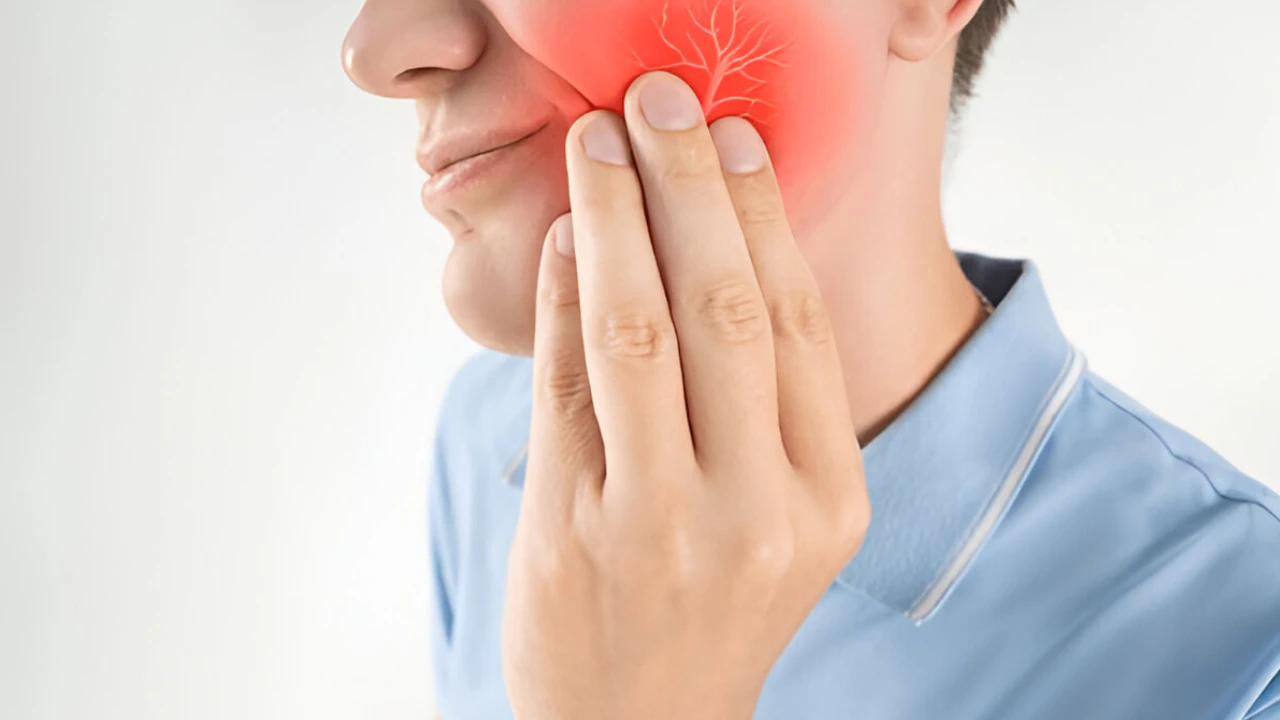


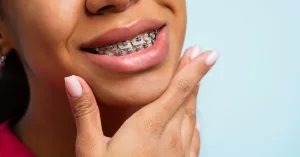


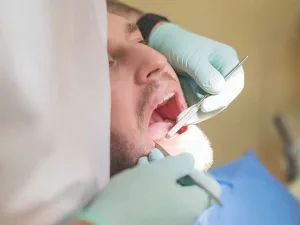
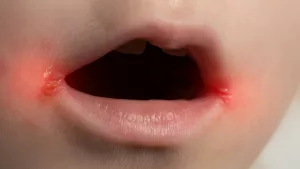
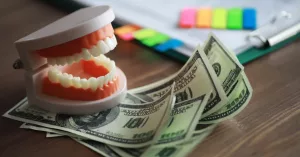

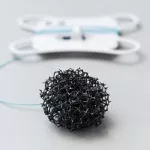













Leave a Reply
You must be logged in to post a comment.